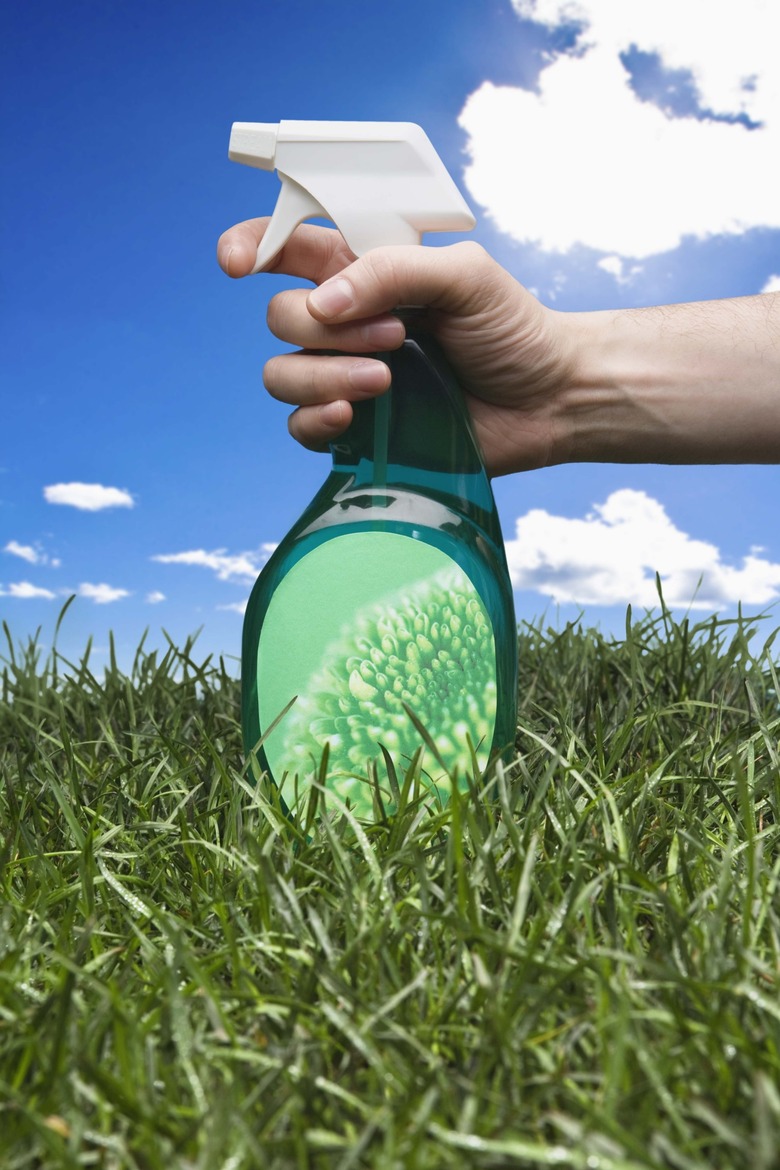Natural Ways To Control Rust On Plants
Rust, a fungal disease, causes red, copper, orange, brown or purplish spots to appear on the leaves. As the disease progresses, infected leaves begin to yellow or brown and can curl, distort and fall from the plant. Controlling rust on plants doesn't require expensive chemical sprays that pollute your home. You can use natural methods to control rust on plants.
Cultural Care
Step 1
The best control for any fungal disease infecting your plants is good cultural care. Excessive moisture and humidity increase the chance of rust infections, so avoid overhead watering and over-watering, which favor the germination and spread of fungal spores. If you can't avoid overhead watering, water early in the day to give the leaves more time to dry. Space plants properly to improve air circulation, which leads to quicker leaf drying, and lower humidity levels. When leaves begin to develop rust spots, remove them immediately to help prevent the fungal disease from spreading.
- Rust, a fungal disease, causes red, copper, orange, brown or purplish spots to appear on the leaves.
- Excessive moisture and humidity increase the chance of rust infections, so avoid overhead watering and over-watering, which favor the germination and spread of fungal spores.
Baking Soda
Step 1
Baking soda — sodium bicarbonate — is a versatile powder that causes your cookies to puff and helps whiten your laundry. It can also be used to naturally control rust on plants. The University of Florida Hillsborough County Extension suggests mixing 4 teaspoons of baking soda and 1 ounce of horticultural oil in 1 gallon of water. This mixture creates a homemade fungicide spray that can be applied to the plant infected with rust at weekly intervals.
Aspirin
Step 1
Regular, over-the-counter aspirin can help control several fungal diseases affecting your plants, including powdery mildew, black spot and rust. According to "Fine Gardening" magazine, dissolving two uncoated aspirin tablets that are 325 milligrams each in 1 quart of water is a natural foliar spray that will kill rust.
Neem Oil
Step 1
University of California Statewide Integrated Pest Management Program recommends using neem oil to control rusts on plants. Neem oil is an organic fungicide that is derived from a broad leaf evergreen plant called neem tree (Azadirachta indica). This tropical tree is native to Madagascar, northwestern Africa and Central America, and grows in U.S. Department of Agriculture plant hardiness zones 10 through 12. Use a ready-to-use neem oil product as a foliar spray once every seven days until the disease is under control. Continue applying at 14-day intervals to keep the disease from returning. Follow any additional directions on the label.
- Baking soda — sodium bicarbonate — is a versatile powder that causes your cookies to puff and helps whiten your laundry.
- University of California Statewide Integrated Pest Management Program recommends using neem oil to control rusts on plants.
References
- University of California Statewide Integrated Pest Management Program: Rusts — Many Species
- Fine Gardening: 35 Pest and Disease Remedies
- University of Florida Hillsborough County Extension: Safe Solutions
- The National Sustainable Agriculture Information Service: Use of Baking Soda as a Fungicide
- Missouri Botanical Garden: Azadirachta Indica
